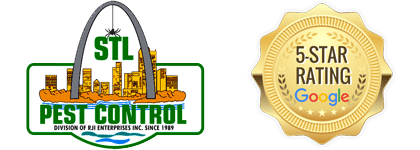In the competitive realm of real estate, the presence or even the mere suspicion of a pest infestation can significantly derail a property’s marketability and value. Real estate agents, positioned at the forefront of property transactions, play a pivotal role in ensuring that listings are not only appealing but also pest-free. The introduction of pests into the equation not only raises concerns about health and safety but also introduces potential legal implications regarding disclosure requirements.
This guide, “Pest-Free Properties: Expert Pest Control Tips for Real Estate Agents,” is designed to equip real estate professionals with the knowledge and strategies necessary to navigate the complex challenges posed by pests. From understanding the impact of infestations on property transactions to identifying common pests and implementing preventative measures, this article will provide a comprehensive overview of how to maintain pest-free properties. By working closely with pest control professionals and communicating effectively with clients about the importance of pest management, real estate agents can ensure smoother transactions and enhance their reputation for diligence and care. Let’s dive into the world of pest control and explore how real estate agents can become indispensable allies in the fight against unwanted pests.
Understanding the Importance of Pest Control in Real Estate:
In the world of real estate, first impressions are paramount. A property that’s visually appealing and structurally sound can fetch a higher market value and attract a wider pool of potential buyers. However, an underlying pest infestation can significantly undermine these attributes, making pest control an essential consideration for real estate agents.
Impact on Property Value and Saleability
Pest infestations can have a detrimental impact on the value of a property. Termites, rodents, and other pests not only cause physical damage to the structure of a home but also raise health concerns that can deter potential buyers. Termite damage alone is responsible for billions of dollars in repair costs annually worldwide, emphasizing the financial risks associated with neglecting pest control.
Moreover, the presence of pests can prolong the sale process. Properties with known infestations often require additional inspections and negotiations, as buyers may demand remediation or price adjustments to account for the cost of pest control measures. This can lead to delays in closing, increased expenses for sellers, and, in some cases, the loss of a sale altogether.


Legal Implications and Disclosure Requirements
Real estate agents must also navigate the legal landscape surrounding pest infestations in property transactions. Many jurisdictions require sellers to disclose known pest problems to potential buyers. Failure to disclose or adequately address pest issues can result in legal repercussions, including lawsuits, for both sellers and their agents.
This legal framework underscores the importance of proactive pest control and thorough inspections. By identifying and addressing pest issues early, real estate agents can help sellers avoid legal pitfalls and ensure that transactions proceed smoothly.
In summary, effective pest control is not just about maintaining the aesthetic and structural integrity of a property; it’s also about safeguarding its value, facilitating a smooth sale process, and complying with legal obligations. Real estate agents who prioritize pest control demonstrate a commitment to their clients’ best interests and the long-term satisfaction of both buyers and sellers.
Identifying Common Pests in Real Estate Listings:
Identifying and understanding the pests that commonly infest properties is a critical skill for real estate agents. Early detection of these pests can prevent extensive damage and preserve the value of the property. Here’s an overview of common pests and their signs of infestation that agents should be aware of.
Termites are among the most destructive pests, causing significant structural damage to properties by eating wood from the inside out. Signs of termite infestation include mud tubes on exterior walls, wood that sounds hollow when tapped, and piles of wings near windows or doors.
- Impact: Cause significant structural damage to properties by consuming wood from the inside out.
- Signs of Infestation:
- Mud tubes on exterior walls
- Wood that sounds hollow when tapped
- Piles of wings near windows or doors
Rodents, such as rats and mice, pose health risks and can damage wiring, insulation, and other parts of a building. Look for droppings, signs of gnawing, and nests in secluded areas as indicators of their presence.
- Impact: Pose health risks and can damage wiring, insulation, and other structural components.
- Signs of Presence:
- Droppings
- Signs of gnawing
- Nests in secluded areas
Cockroaches are not only a health hazard but also a sign of unsanitary conditions that can deter buyers. Their presence is often indicated by droppings, egg casings, and a distinctive odor in infested areas.
- Impact: Represent a health hazard and indicate unsanitary conditions, potentially deterring buyers.
- Signs of Presence:
- Droppings
- Egg casings
- A distinctive odor in infested areas
Professional Inspections Are Crucial
While real estate agents can learn to spot these common signs of pest infestation, professional inspections are essential for a thorough assessment. Pest control professionals can identify less obvious signs of infestation and recommend appropriate treatment options. Encouraging sellers to invest in professional pest inspections before listing a property can help avoid unpleasant surprises during the sales process.
Educating clients about the importance of pest control and the signs of common pests can also facilitate early detection and treatment, ultimately protecting the investment in the property. By being knowledgeable in this area, real estate agents add value to their service, helping both sellers and buyers navigate the complexities of property transactions with confidence.
Preventative Pest Control Measures for Properties:
A proactive approach to pest control can significantly reduce the likelihood of infestations, safeguarding the property’s value and appeal. Real estate agents can guide sellers in implementing effective preventative measures to ensure their properties remain attractive to buyers. Here are key strategies for maintaining a pest-free environment:
Regular Inspections and Maintenance
Conducting regular inspections of the property, especially in areas prone to pests, is crucial. Look for signs of damage, such as holes or cracks in the foundation, walls, and roofing. Regular maintenance and prompt repairs can prevent pests from gaining entry.
Sealing Entry Points
Pests can enter through the smallest openings. Sealing cracks and gaps in doors, windows, and the property’s foundation can block their access. Installing screens on windows and vents can also deter flying insects and rodents.
Landscaping and Exterior Maintenance
Overgrown vegetation and debris near the property can provide shelter and breeding grounds for pests. Maintaining a clean and clutter-free yard, trimming bushes and trees away from the structure, and disposing of yard waste promptly can minimize pest attraction.
Proper Drainage and Moisture Control
Moist environments attract pests like termites and cockroaches. Ensuring that the property has proper drainage and fixing leaks can prevent moisture buildup. Clean gutters and downspouts regularly to avoid water accumulation around the foundation.
Trash and Recycling Management
Regularly dispose of trash and keep recycling bins clean and closed. Stored garbage can attract rodents and insects. Positioning trash bins away from the main structure can also help keep pests at bay.
Implementing these preventative measures can significantly reduce the risk of pest infestations, making properties more attractive to potential buyers and protecting the investment made by sellers. Real estate agents who advocate for these practices demonstrate their commitment to their clients’ best interests and the success of the property transaction.
Working with Pest Control Professionals: What Real Estate Agents Need to Know:
For real estate agents, navigating the complexities of pest control can be daunting. However, establishing a partnership with a reputable pest control professional can make all the difference in ensuring properties are well-maintained and ready for sale. Here’s what real estate agents need to know when working with pest control services.
Choosing a Reliable Pest Control Service
The selection of a pest control professional should be based on their expertise, reputation, and the range of services they offer. Agents should look for licensed and insured providers with a history of effective and safe pest management solutions. Recommendations from other real estate professionals and reviews from past clients can also guide this decision.
Understanding Pest Control Treatments
Pest control treatments can vary significantly depending on the type of infestation and the extent of the problem. Real estate agents should familiarize themselves with common treatments, such as baiting systems for termites or sealing and exclusion methods for rodents. This knowledge will allow agents to better communicate with both pest control professionals and their clients regarding the process and expectations.
Coordinating Treatments with Sellers and Buyers
Effective communication is key when coordinating pest control treatments. Real estate agents must ensure that sellers understand the importance of addressing pest issues before listing the property and that buyers are informed about any treatments carried out and any warranties or guarantees provided. Agents should also facilitate the scheduling of treatments to minimize disruptions to the sale process.
Documenting Pest Control Efforts
Documentation of pest control efforts is crucial for several reasons. It provides proof of treatment for buyers, reassures them of the property’s condition, and can be a valuable asset in negotiations. Real estate agents should ensure that all pest control actions are well-documented, including inspections, treatments, and follow-up visits.
Educating Clients on the Value of Professional Pest Control
Real estate agents play a crucial role in educating both sellers and buyers about the value of professional pest control. By highlighting the benefits of proactive pest management, agents can encourage sellers to invest in pest control services and reassure buyers of the property’s condition, ultimately facilitating smoother transactions.
Communicating with Clients About Pest Control:
In the competitive landscape of real estate, transparent and effective communication with clients about pest control can significantly enhance an agent’s reputation and success rate. Here’s how real estate agents can effectively communicate with clients regarding pest management:
Educating Sellers on the Benefits of Preemptive Pest Control
Real estate agents should emphasize to sellers the importance of addressing pest issues before listing their property. By investing in professional pest inspections and treatments, sellers can enhance the appeal and value of their property, minimize negotiations related to pest problems, and expedite the sale process. Agents can host seminars, provide informational brochures, or even include pest control tips in their newsletters to educate sellers on these benefits.
Reassuring Buyers with Effective Pest Control Documentation and Warranties
For buyers, the assurance that a property has been professionally inspected and treated for pests can be a decisive factor in their purchase decision. Real estate agents can facilitate this reassurance by providing comprehensive documentation of pest control efforts, including inspection reports, treatment records, and any warranties or guarantees from pest control companies. This documentation not only reassures buyers about the condition of the property but also demonstrates the seller’s and agent’s commitment to transparency and quality.
Hosting Workshops and Seminars
Agents can further educate both sellers and buyers by hosting workshops or seminars on the importance of pest control in property management. These events provide a platform for agents to share valuable information, answer questions, and engage with clients in a meaningful way. By positioning themselves as knowledgeable resources on pest control, agents can build trust and credibility with their clients.
Utilizing Digital Platforms for Education
In today’s digital age, real estate agents can also leverage social media, blogs, and email newsletters to share pest control tips and information. Creating engaging content that highlights the importance of pest management can educate a wider audience and reinforce the agent’s expertise in real estate and property care.
By adopting these communication strategies, real estate agents can effectively educate and reassure their clients about pest control, ensuring smoother transactions and fostering long-term client relationships.
FAQ’s
1. Why is pest control important in real estate?
Answer: Pest control is crucial in real estate to maintain the structural integrity, aesthetic appeal, and market value of properties. Infestations can cause significant damage, lead to health issues, and deter potential buyers, affecting the saleability of the property. Effective pest management ensures properties are safe, appealing, and compliant with legal disclosure requirements.
2. How can termites affect a property sale?
Answer: Termites can severely impact a property sale by causing structural damage that may require costly repairs. Discovering a termite infestation during the inspection process can lead to negotiations, where buyers may request lower prices or demand that the issue be resolved before purchase. Addressing termite issues beforehand can prevent these complications and facilitate smoother transactions.
3. What are the signs of rodent infestation to look out for?
Answer: Signs of rodent infestation include droppings, especially around food areas and under sinks; signs of gnawing on food packaging, furniture, or wires; nests made from shredded paper or other materials in secluded areas; and strange noises, such as scratching sounds from within walls or ceilings, particularly at night.
4. How can cockroaches impact the health of residents?
Answer: Cockroaches can carry and spread various bacteria and pathogens that lead to diseases such as salmonella, gastroenteritis, and allergies. Their droppings, skin shedding, and the bodies they leave behind can contaminate surfaces and food, posing a significant health risk to residents, especially to those with respiratory issues like asthma.
5. What preventative measures can homeowners take to avoid pest infestations?
Answer:
- Seal Cracks and Openings: Close off entry points to prevent pests from entering.
- Regular Maintenance: Conduct routine inspections and repairs to address potential pest harborage areas.
- Proper Waste Management: Store trash and recycling bins properly and keep them clean to avoid attracting pests.
- Landscaping: Trim vegetation and maintain the yard to reduce shelter for pests.
- Moisture Control: Fix leaks and ensure good drainage around the property to discourage pests attracted to moisture.
Why should you choose STL Pest Control for your pest management needs in St. Louis, MO?
Choosing STL Pest Control for your pest management needs in St. Louis, MO, ensures you’re partnering with a local leader in pest control services. Our company stands out for several key reasons:
- Local Expertise: As a St. Louis-based company, we have in-depth knowledge of the local pest challenges unique to our area. This allows us to provide tailored solutions that are highly effective in our community’s specific environment.
- Professional and Experienced Technicians: Our team consists of highly trained and experienced professionals dedicated to delivering top-quality service. We use the latest techniques and tools to ensure your property is protected from pests.
- Comprehensive Services: STL Pest Control offers a wide range of pest management services, from termite and rodent control to dealing with cockroaches and other common pests. Whether you’re a homeowner, a real estate agent, or a property manager, we have the expertise to address all your pest control needs.
- Customer-Centric Approach: We prioritize our customers’ satisfaction above all else. Our team works closely with you to understand your concerns and provide customized solutions that fit your specific needs and budget.
- Proven Track Record: With years of experience serving the St. Louis community, we’ve built a reputation for reliability, effectiveness, and excellent customer service. Our many satisfied clients are a testament to our commitment to excellence in pest control.
When it comes to safeguarding your property against pests, STL Pest Control is your trusted local partner. Contact us today to learn more about how we can help you maintain a pest-free environment.

